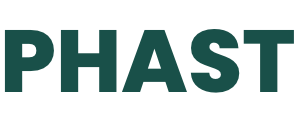Equity Action – Evaluation of a European-wide programme to address health inequalities

Background:
Following publication of its communication, ‘Solidarity in Health: Reducing Health Inequalities in the EU’, in 2010, the European Commission initiated a three year Joint Action on Health Inequalities – Equity Action (EA). The programme began in February 2011 and ended in February 2014. Its aims were to identify what works in promoting effective action on the underlying causes of socio- economic health inequalities and to apply learning across the EU through the engagement of 16 Member States and 24 partners.
Background:
Following publication of its communication, ‘Solidarity in Health: Reducing Health Inequalities in the EU’, in 2010, the European Commission initiated a three year Joint Action on Health Inequalities – Equity Action (EA). The programme began in February 2011 and ended in February 2014. Its aims were to identify what works in promoting effective action on the underlying causes of socio- economic health inequalities and to apply learning across the EU through the engagement of 16 Member States and 24 partners.
In pursuit of these aims, EA created 4 key work-packages: (1) focussing on tools to build capability and improve policy making through undertaking Health Impact Assessments and Health Equity Audits; (2) identifying and supporting regional approaches, focussing on EU Structural Funds; (3) developing a Scientific Reference Group to develop a European research agenda; (4) encouraging inter-sectoral networking and alliances between stakeholders to promote and embed the social determinants of health agenda.
What was the problem?
EA sought an evaluation of their programme to (1) identify the impact of the programme on the capability of Member States to produce effective policies to address health inequalities and (2) identify the elements of the joint action that work best to support Member State development. The evaluation was to run parallel to the delivery of the Joint Action and thereby contribute to its development and implementation.
How did PHAST help?
Two evaluators from PHAST adopted an action-research approach to generate information to aid those co-ordinating the programme. Phase 1 included observation of a stakeholders meeting in Budapest and a baseline survey of partners to the Joint Action, Workpackage Leads and key EU Commissioners. Our report in September 2012 identified five key messages which became themes for subsequent phases of the evaluation: working together, sharing the vision, building capability, increasing visibility and planning for the future.

In May 2013 PHAST reported on Phase 2 of the evaluation which included observation of ‘Equity Action Week’ in Berlin and focussed more specifically on the work of the four workpackages, reviewing its activities and offering constructive suggestions on how EA might enhance aspects of their work to meet their declared outcomes.
For the third phase of the evaluation the evaluators attended EA’s Final Conference in Brussels in January 2014 and surveyed partners and policy leads of the Members States involved in the Joint Action. In addition, evidence was reviewed to explore the degree to which EA had met its declared objectives and outcomes.
The final evaluation concluded that Equity Action had been a success in raising awareness of the need to adopt an equity focus in policies and programmes when addressing health inequalities. Its range of activities had also empowered individuals and agencies across Member States and Regions to promote action and develop inter-sectoral collaborations to explore strategies to effect change at national, regional and local levels. It was also judged that the Joint Action had elevated the issue of the need to address health inequalities to be included on political agendas across Member States and that its Final Conference had provided a launch pad for greater impetus.
What was the Impact?
Equity Action valued the approach undertaken by PHAST and
highlighted the constructive relationship with the evaluators over
the three year period, remarking,
“The process was both supportive, in that the PHAST team worked closely with the key programme and work package leads, and challenging in that areas where evaluation had indicated that further work was required to improve outcomes were flagged in an appropriately clear and assertive fashion.”
EA also commented that the style of the evaluation report helped
them to meet their reporting requirements to the EC.
It is confidently anticipated that the success of the Joint Action will lead to the commitment of further resources from the EC to support a successor programme.
The poster is attached below.
WORK WITH US
For more information about our work or if you would like to speak to a member of the PHAST Team contact us.
Sign up for PHAST News & Views

